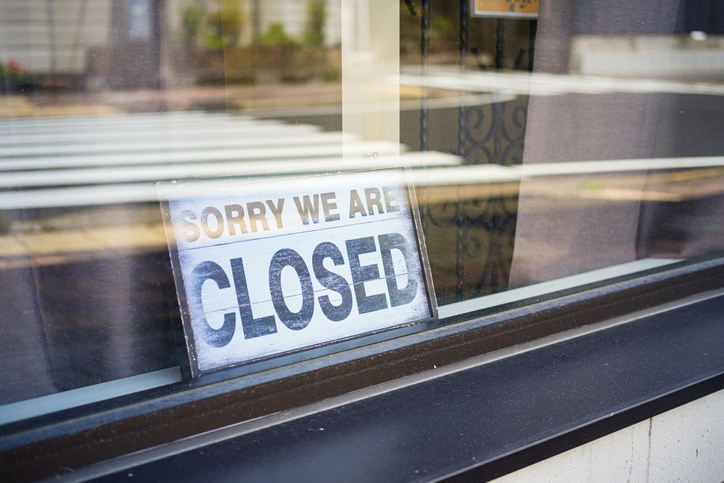U.S. Economy Slows, but Europe’s Picks Up, Raising Hopes World Will Avoid Recession
China’s reopening could further support the global economy this year but raises inflation risks
Two of the world’s largest economies moved in opposite directions at the start of the year, with U.S. businesses reporting further declines in activity in January while the eurozone saw a modest pickup.
The divergence suggests that while the U.S. economy continues to lose momentum, Europe’s could be stabilising, at least for now. The pace of contraction in U.S. firms slowed in January, according to new business surveys released Tuesday, a possible signal that the economy could be bottoming out, thanks to slowing inflation and resilient demand.
Combined, the surveys point to a global economy that looks likely to slow this year but could avoid recession. The receding threat of energy shortages in Europe, a still-growing U.S. economy, and China’s postpandemic reopening could offset the effect of higher prices and interest rates and keep the world from a steep downturn.
In the U.S., the economy continues to expand late last year, despite the Federal Reserve’s string of interest-rate increases designed to cool the economy and bring inflation under control. Higher rates have weighed heavily on certain sectors and could be causing households to pull back.
Home sales fell almost 18% in 2022 from the previous year. Retail sales were down 1.1% in December and the labour market, while still vibrant, is starting to show cracks. Employers have shed temporary workers for five straight months. Some economists see lower temporary payrolls as a precursor to a broader decline in employment.
Yet economists estimate the U.S. economy grew at a seasonally adjusted annual rate of 2.8% in the fourth quarter of last year, down slightly from 3.2% in the third quarter. Inflation, which hit a four-decade high last year, is cooling. Consumer prices rose 6.5% in December from a year earlier, down from a 2022 peak of 9.1% in June.
The Commerce Department will release fourth-quarter gross-domestic-product data on Thursday.
Until recently most economists had seen the eurozone as likely to enter a recession this year after energy bills soared because of the Ukraine war.
But the combination of a mild winter, energy-conservation efforts, moves by governments to find new natural-gas suppliers and hundreds of billions of euros in fiscal support appear to have propped up the eurozone economy.
On Tuesday, S&P Global said its composite output index for the U.S., a closely watched survey of business activity, was 46.6 in January, a slightly slower pace of contraction from December’s index of 45. In Europe, the index rose to 50.2 from 49.3. A reading above 50 points to an expansion while a reading below that level points to a contraction.
“A steadying of the eurozone economy at the start of the year adds to evidence that the region might escape recession,” said Chris Williamson, chief business economist at S&P Global Market Intelligence.
The U.S., on the other hand, “has started 2023 on a disappointingly soft note,” he said. “Although moderating compared to December, the rate of decline is among the steepest seen since the global financial crisis.”
Monetary policy could explain some of the divergence and could point to more trouble ahead for Europe, according to Jennifer McKeown, chief global economist at Capital Economics.
While the Federal Reserve has raised interest rates by more than 4 percentage points since March to a range of between 4.25% and 4.5%, the European Central Bank has moved at a slower pace, pushing up its policy rate by 2.5 percentage points starting in July.
Rates in Europe have further to rise while the U.S. may be nearing the end of its rate-increase cycle, she wrote in a note to clients Tuesday.
“Some of this pain has yet to come in the eurozone,” she wrote. “However, the region may avoid a recession or, if there is one, it seems likely to be milder than we had feared.”
The surveys of U.S. purchasing managers found that higher interest rates and persistent inflation weighed on demand in the manufacturing and service sectors. But employment continued to rise as companies worked through their backlog of orders.
In Europe, the surveys pointed to a further easing of price pressures in January, as business costs rose at the slowest pace since April 2021. The eurozone’s annual rate of consumer-price inflation eased for the second straight month in December and further declines are expected this year.
By contrast, January’s composite output index for the U.K. fell to 47.8 from 49.0 to reach a two-year low. That was a sign that the country’s economy may lag behind other parts of Europe as businesses grapple with a shortage of workers, the impact of interest-rate rises by the Bank of England that started at the end of 2021, and the continuing drag on business investment caused by its exit from the European Union.
Elsewhere, China lifted many of its zero-tolerance pandemic controls in early December in an abrupt change of course. While that led to an increase in Covid-19 infections and deaths, it also opened the door to a sharp economic rebound in the world’s second-largest economy, which suffered its weakest expansion in four decades in 2022.
“The relaxation of China’s strict zero-Covid policy has boosted growth prospects, whilst the warmer weather in Europe has helped temper the intensity of the energy crisis,” economists at Investec wrote in a note to clients as they raised their forecast for global economic growth this year to 2.4% from 2.2%.
But China’s reopening also presents a risk to the global economy. The release of pent-up demand could drive up the price of oil and other commodities, which could put renewed pressure on global inflation. That, in turn, could force central banks to keep interest rates high, which would weigh on growth.
 Copyright 2020, Dow Jones & Company, Inc. All Rights Reserved Worldwide. LEARN MORE
Copyright 2020, Dow Jones & Company, Inc. All Rights Reserved Worldwide. LEARN MORE
This stylish family home combines a classic palette and finishes with a flexible floorplan
Just 55 minutes from Sydney, make this your creative getaway located in the majestic Hawkesbury region.
As Paris makes its final preparations for the Olympic games, its residents are busy with their own—packing their suitcases, confirming their reservations, and getting out of town.
Worried about the hordes of crowds and overall chaos the Olympics could bring, Parisians are fleeing the city in droves and inundating resort cities around the country. Hotels and holiday rentals in some of France’s most popular vacation destinations—from the French Riviera in the south to the beaches of Normandy in the north—say they are expecting massive crowds this year in advance of the Olympics. The games will run from July 26-Aug. 1.
“It’s already a major holiday season for us, and beyond that, we have the Olympics,” says Stéphane Personeni, general manager of the Lily of the Valley hotel in Saint Tropez. “People began booking early this year.”
Personeni’s hotel typically has no issues filling its rooms each summer—by May of each year, the luxury hotel typically finds itself completely booked out for the months of July and August. But this year, the 53-room hotel began filling up for summer reservations in February.
“We told our regular guests that everything—hotels, apartments, villas—are going to be hard to find this summer,” Personeni says. His neighbours around Saint Tropez say they’re similarly booked up.
As of March, the online marketplace Gens de Confiance (“Trusted People”), saw a 50% increase in reservations from Parisians seeking vacation rentals outside the capital during the Olympics.
Already, August is a popular vacation time for the French. With a minimum of five weeks of vacation mandated by law, many decide to take the entire month off, renting out villas in beachside destinations for longer periods.
But beyond the typical August travel, the Olympics are having a real impact, says Bertille Marchal, a spokesperson for Gens de Confiance.
“We’ve seen nearly three times more reservations for the dates of the Olympics than the following two weeks,” Marchal says. “The increase is definitely linked to the Olympic Games.”

Getty Images
According to the site, the most sought-out vacation destinations are Morbihan and Loire-Atlantique, a seaside region in the northwest; le Var, a coastal area within the southeast of France along the Côte d’Azur; and the island of Corsica in the Mediterranean.
Meanwhile, the Olympics haven’t necessarily been a boon to foreign tourism in the country. Many tourists who might have otherwise come to France are avoiding it this year in favour of other European capitals. In Paris, demand for stays at high-end hotels has collapsed, with bookings down 50% in July compared to last year, according to UMIH Prestige, which represents hotels charging at least €800 ($865) a night for rooms.
Earlier this year, high-end restaurants and concierges said the Olympics might even be an opportunity to score a hard-get-seat at the city’s fine dining.
In the Occitanie region in southwest France, the overall number of reservations this summer hasn’t changed much from last year, says Vincent Gare, president of the regional tourism committee there.
“But looking further at the numbers, we do see an increase in the clientele coming from the Paris region,” Gare told Le Figaro, noting that the increase in reservations has fallen directly on the dates of the Olympic games.
Michel Barré, a retiree living in Paris’s Le Marais neighbourhood, is one of those opting for the beach rather than the opening ceremony. In January, he booked a stay in Normandy for two weeks.
“Even though it’s a major European capital, Paris is still a small city—it’s a massive effort to host all of these events,” Barré says. “The Olympics are going to be a mess.”
More than anything, he just wants some calm after an event-filled summer in Paris, which just before the Olympics experienced the drama of a snap election called by Macron.
“It’s been a hectic summer here,” he says.

AFP via Getty Images
Parisians—Barré included—feel that the city, by over-catering to its tourists, is driving out many residents.
Parts of the Seine—usually one of the most popular summertime hangout spots —have been closed off for weeks as the city installs bleachers and Olympics signage. In certain neighbourhoods, residents will need to scan a QR code with police to access their own apartments. And from the Olympics to Sept. 8, Paris is nearly doubling the price of transit tickets from €2.15 to €4 per ride.
The city’s clear willingness to capitalise on its tourists has motivated some residents to do the same. In March, the number of active Airbnb listings in Paris reached an all-time high as hosts rushed to list their apartments. Listings grew 40% from the same time last year, according to the company.
With their regular clients taking off, Parisian restaurants and merchants are complaining that business is down.
“Are there any Parisians left in Paris?” Alaine Fontaine, president of the restaurant industry association, told the radio station Franceinfo on Sunday. “For the last three weeks, there haven’t been any here.”
Still, for all the talk of those leaving, there are plenty who have decided to stick around.
Jay Swanson, an American expat and YouTuber, can’t imagine leaving during the Olympics—he secured his tickets to see ping pong and volleyball last year. He’s also less concerned about the crowds and road closures than others, having just put together a series of videos explaining how to navigate Paris during the games.
“It’s been 100 years since the Games came to Paris; when else will we get a chance to host the world like this?” Swanson says. “So many Parisians are leaving and tourism is down, so not only will it be quiet but the only people left will be here for a party.”
This stylish family home combines a classic palette and finishes with a flexible floorplan
Just 55 minutes from Sydney, make this your creative getaway located in the majestic Hawkesbury region.






















